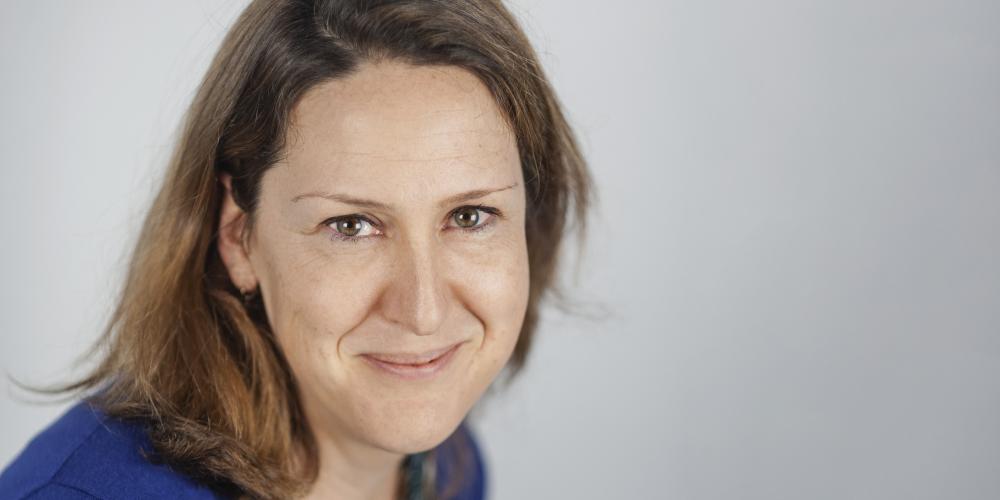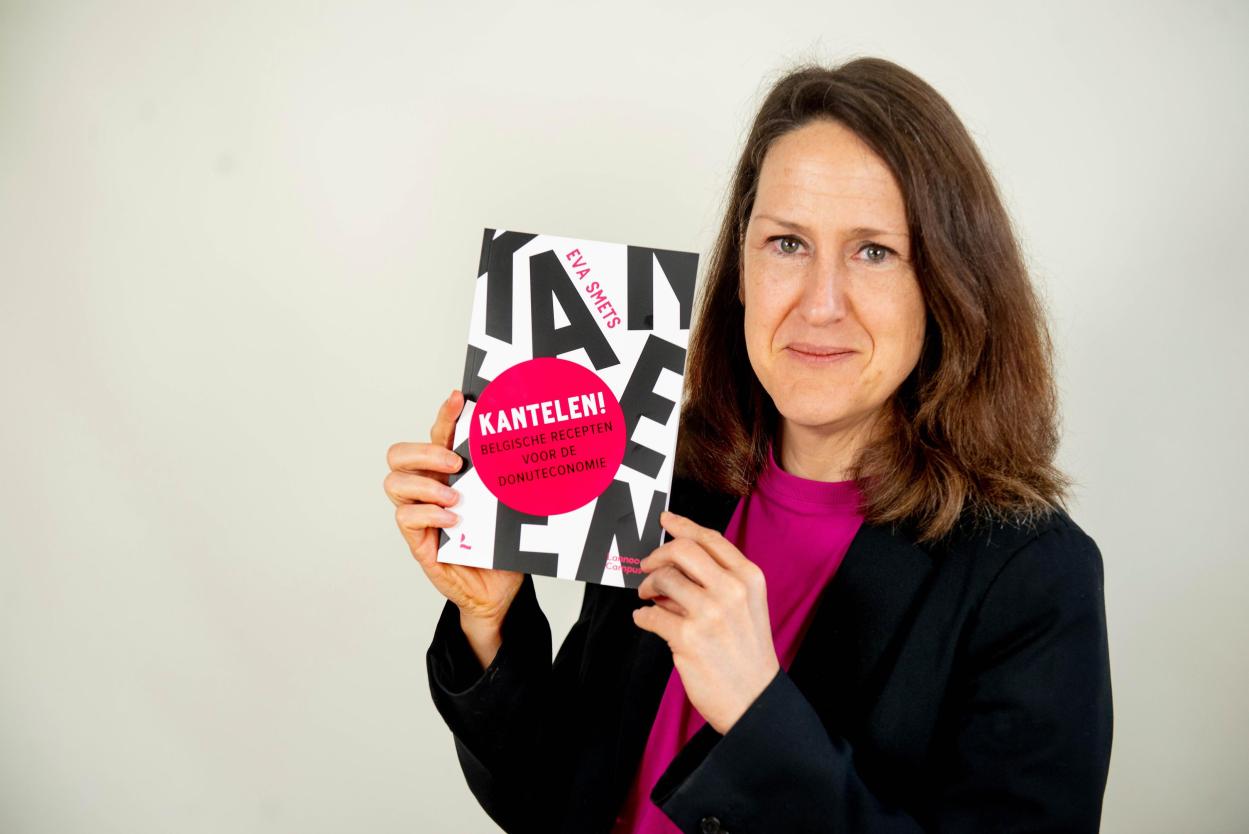
The inequality in our world is sky-high, with an enormous economic, human, social, and ecological cost. Our model is cracking at all seams, and we often feel powerless to do anything about it. In her book "Shift!", VUB alumna Eva Smets, Executive Director of Oxfam Belgium and honorary fellow of Letters and Philosophy, aims to demonstrate that a new, just approach to our economy, climate, and social care is not only desperately needed but also within reach.
"We are faced with many fundamental questions, confronting a climate crisis, a purchasing power crisis, geopolitical threats, exponentially rising economic inequality... The question is, how do we deal with all of this? The problem is that we have inherited a system from the 20th century. It has fostered an economic mindset that is linear and that primarily looks at growth as a measure of prosperity. This thinking is no longer sufficient to address the challenges of today."
Is there an alternative?
"In my book, I specifically explore the doughnut economy model. My former colleague from British Oxfam, Kate Raworth, laid the groundwork for this doughnut economy in 2017. Her book was an eye-opener for me: I felt something was off. The issue is that so much is off, it makes you feel powerless and raises the question: what can I commit to? Kate’s explanation of the doughnut economy was both a Eureka and Aha moment for me, offering me a viable compass."
The Doughnut is an economic model that measures economic prosperity by considering the achievement of a social foundation without exceeding ecological ceilings. The name comes from the shape of the diagram: a circle with a hole in the middle. The model's hole represents how many people lack access to basic necessities like healthcare, education, and housing. The crust shows to what extent ecological ceilings, upon which life depends, are exceeded.

"It's perfectly feasible to operate within the ecological upper limit and the social lower limit"
The subtitle of your book is 'Belgian recipes for a doughnut economy'.
"From my position at Oxfam, people often ask me how to approach a different way of living. And, according to the Flemish saying of 2024, is it 'feasible and affordable'? It certainly is, it's perfectly feasible to operate within the ecological upper limit and the social lower limit and to make a profitable business out of it. And, importantly in this era of burnouts, to become happier as a result."
"I grew up with stories of people in power: politicians, business leaders, bankers... The discourse of often white men who might agree with you in your quest but then point out that there is no alternative to the current situation. The infamous TINA: There Is No Alternative. Shouldn't we organize our agriculture differently? 'No,' you hear, because without the current agro-industry we cannot feed the world population. Or should our companies not invest their profits into a green transition? 'No,' because if we don't pay dividends to shareholders, then no one will invest in entrepreneurship anymore, and so on. The list of TINAs is endless, and we are heading for downfall this way. Society must move away from this, we need to embrace TAMARA's: There Are Many Alternatives Ready and Available."
"If you're starting a company from scratch, you're in the ideal position to operate circularly and regeneratively."
Do these alternatives form the basis of your book?
"I started asking people, deliberately in Belgium because then it's immediately relevant to us. I spoke with scientists and entrepreneurs about how they would tackle a number of issues. I divided those into three chapters: economy, climate, and gender-social. The book is primarily an open invitation to anyone who wants to apply the principles of the doughnut economy to their own sector or expertise. This is also a call to the VUB with its large student population in various disciplines, who will become the citizens, entrepreneurs, and scientists of tomorrow."
Eva herself has fond memories of her time at VUB. "My history education at the faculty of letters and philosophy partly prepared me to develop a broad and critical view of the world around me, and to place events and current affairs in a broader context."
What does a young entrepreneur or a graduate going to work for a large company take from your book?
"If you're starting a company from scratch, you're in the ideal position to operate circularly and regeneratively. I'm absolutely convinced this is perfectly possible. Oxfam is a good example. We also do business; we're the only NGO that also runs an active trade department. So, I'm not just managing a non-profit but also a company that must turn a profit at the end of the day. It's definitely possible for an entrepreneur, moreover, it's our duty: whether you do it out of personal conviction or not, the duty of care for entrepreneurs will anyhow be codified in an EU regulatory framework. And for the young graduate stepping into the private sector now, the principles of the doughnut economy can also be helpful. It starts with choosing which company to work for: evaluate it based on sustainability principles."
"Do you think companies choosing this path deserve a boost from the government?"
"There are quite a few additional support measures. It annoys me when I hear that non-profits are 'subsidy guzzlers.' When you add up everything that goes to the private sector, the subsidies to non-profits pale in comparison. Currently, for example, the use of fossil fuels is supported with 31 billion euros each year. While we've known for decades that this is a dead end, that money could be better invested in new jobs in a sustainable economy."
On Tuesday, March 26, Eva Smets presented her book "Shift!" during a debate with politicians Wouter Beke, Celia Groothedde, Oskar Seunbjes, and deputy chief of staff for Minister Demi, Stijn Caekelbergh. More information about the book tour can be found on the Oxfam Belgium website: https://oxfambelgie.be/kantelen
The book is available for purchase at Lannoo Campus for 25.99 euros.